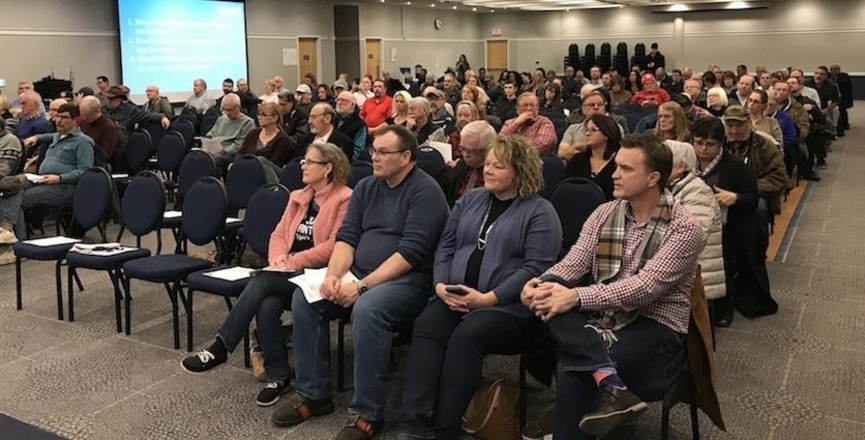Alberta’s so-called “fair deal” panel, which might have seemed like a good idea when Premier Jason Kenney announced it last fall, presents something of a political problem for a government that has let Ottawa do the heavy lifting throughout the coronavirus pandemic.
Premier Kenney pitched the rhetorical roadshow as a way to help ruggedly individualistic Albertans cast off the dead weight of Ottawa’s collectivist mentality and, in the words of the notorious Firewall Manifesto, “take greater charge of our own future.”
Most of the ideas the nine-member panel was instructed to explore came straight out of the risible independantiste screed penned in 2001 by Stephen Harper, three of his market-fundamentalist college teachers and a couple of hangers on.
But faced with an actual crisis caused by the coronavirus, Kenney’s United Conservative Party government mostly bowed to federal decisions, did its best to upload the costs onto the feds and concentrated on yelling at the likes of Norway and China. The former was attacked for its lack of enthusiasm for getting back to the carbon economy as quickly as possible; the latter, inspired by U.S. President Donald Trump, presumably to deflect the blame for any shortfalls in the province’s efforts to limit the spread of COVID-19.
This makes it pretty obvious to Albertans who are paying attention — say what they will about Prime Minister Justin Trudeau — what level of government you need to go to in a real crisis.
To put this metaphorically, it’s all very well to say that an Englishman’s home is his castle, but when fire breaks out in the castle kitchen, your imagined Englishman will still likely ring the fire brigade!
Which means that most of the panel’s presumably predetermined recommendations — replacing the RCMP with a provincial force, no longer cooperating with Ottawa to collect taxes, finding ways to wiggle out of the Canada Health Act, appointing provincial chief firearms officer dedicated to not enforcing the gun-control provisions of the federal Criminal Code, and dumping the Canada Pension Plan and replacing it with a provincial version — either have lost some of the cachet they appeared to have a few months ago or have already proved to be unpopular with voters.
More provincial autonomy as a general theme has certainly lost lustre now that Albertans have seen how little our provincial government is willing to do about anything, no matter how important, that isn’t among the bees in Premier Kenney’s bonnet.
The idea of grabbing CPP funds contributed by Albertans so that the UCP can dip into our retirement security to prop up Kenney’s beloved oil industry just about moved participants to tears of fury at some of the panel’s 10 small “town halls” across the province.
Despite the panel’s baked-in assumption Alberta gets a raw deal from the rest of Confederation and its apparent effort to lead witnesses to the conclusions the government wanted, plenty of people got up on their hind legs at the town hall I attended January 9 in Fort Saskatchewan to proclaim their love of Canada and advise panel members they thought this province needs to start working with our fellow citizens instead of just yelling at them.
Soon after came the coronavirus, making their case for them.
Given all this, it should come as no surprise that nothing was said about the panel’s report until Saturday, May 16, when the government revealed in a rare long-weekend news release the report was in its hands.
How long the government has had it remains a mystery. The panel was supposed to report at the end of March and received an extension until mid-April. News reports have indicated it was submitted this month. But on Sunday a member of the panel suggested in a tweeted remark that the government has had a final copy for more than a month.
Whenever it was received, the report can now sit on the shelf until a more promising moment to implement Harper’s bad ideas, which even Ralph Klein had the good sense to spike back in 2001.
“I look forward to giving this report and its recommendations the proper attention it deserves once we have safely started to implement our relaunch strategy,” Kenney said in Saturday’s news release. The middle of a long weekend, needless to say, is an appropriate time for publishing information a government would like voters to forget about as quickly as possible.
If you want to know what the panel recommended, you’ll just have to wait till a time of Kenney’s choosing.
“Government will announce a date for the public release of the report once the urgency of the COVID-19 response has subsided,” the government’s press release explained, a judgment, of course, that is entirely in the government’s hands.
The panel, chaired by former senior mandarin Oryssia Lennie, included Preston Manning, the godfather of the Canadian right; Stephen Lougheed, president of Alberta Innovates and son of the late premier Peter Lougheed; Donna Kennedy-Glans, a former Progressive Conservative cabinet minister now a blogger whose blog sometimes advocates some sort of sovereignty-association; law professor Moin Yahya; and backbench UCP MLAs Drew Barnes, Miranda Rosin and Tony Yao. The ninth member of the panel, former Assembly of First Nations regional chief Jason Goodstriker, died suddenly on January 16.
David Climenhaga, author of the Alberta Diary blog, is a journalist, author, journalism teacher, poet and trade union communicator who has worked in senior writing and editing positions at The Globe and Mail and the Calgary Herald. This post also appears on his blog, AlbertaPolitics.ca.
Image: David J. Climenhaga




